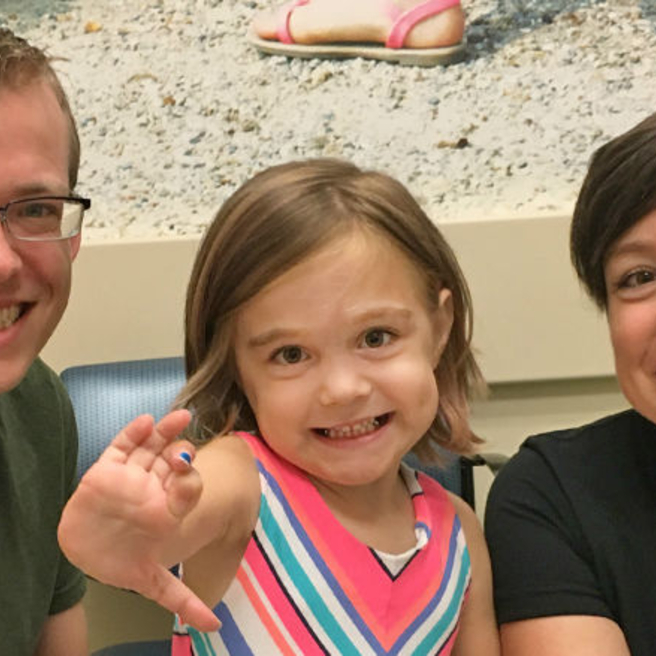Pediatric Multiple Sclerosis and Neuroinflammatory Disorders Clinic

We know how difficult it can be to learn your child has an unpredictable condition like multiple sclerosis (MS) or a neuroinflammatory disorder. We are here for you. Our Pediatric Multiple Sclerosis and Neuroinflammatory Disorders Clinic is led by world-renowned experts. We have the answers and advanced treatment options you and your child need. Each member of our dedicated team is specially trained to support your child's needs from cutting-edge diagnosis and clinical care until they transition to adult care. At every stage, we look for ways to improve treatment and quality of life for your child.
How we serve you
Your child's team is made up of experts who are not only specially trained in diagnosis and clinical care, but are also involved in the development of new ways to treat multiple sclerosis (MS) and neuroinflammatory disorders.
Conditions we treat
If your child has been diagnosed with or has symptoms of any neuroinflammatory or demyelinating disease, we are here to help. We treat the full range of conditions.

Why choose CHOP for MS and neuroinflammatory disorders
The Pediatric Multiple Sclerosis and Neuroinflammatory Disorders Clinic at CHOP offers world-class care for pediatric-onset multiple sclerosis and other neuroimmune disorders.

Meet your team
Here at the Pediatric Multiple Sclerosis (MS) and Neuroinflammatory Disorders Clinic, you have access to a large team of experts. Our neurologists and nurses specialize in caring for children with multiple sclerosis and neuroinflammatory disorders.

Our research
The Pediatric MS and Neuroinflammatory Disorders Clinic is working on research studies to help kids get better care. Our doctors and research coordinators will talk to you and your child about our studies and see if you can be part of them. If you join a study, our team will work with you to schedule research procedures along with your clinic visits or on a separate day.

Our resources
We have created resources to help you find answers to your questions and feel confident with the care you are providing your child.

Your child’s appointment
Knowing who you will meet and what to expect at your child's appointment with the MS and Neuroinflammatory Disorders Clinic can help put you and your child at ease.
Your donation changes lives
A gift of any size helps us make lifesaving breakthroughs for children everywhere.


